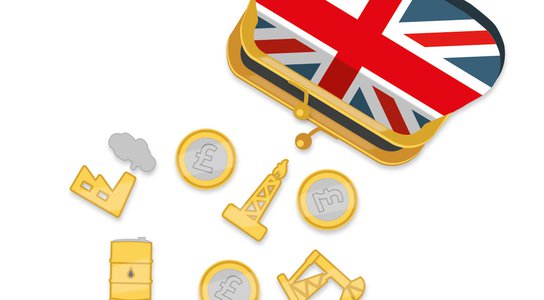- 96% of UK Export Finance’s energy-related gifts and hospitality were related to fossil fuel projects, with just 4% related to renewables
- The top ten companies extending their generosity include some of the world’s biggest polluters, including Gazprom and Saudi Aramco
- These records show how UK Export Finance’s energy operations are dominated by fossil fuel companies, yet the UK Government claims to be a climate leader. As the Government has promised a green recovery from COVID-19, it needs to end taxpayer support for fossil fuels overseas.
What does the company you keep say about you?
We’ve been trying to find out what it means for UK Export Finance (UKEF), an opaque government agency whose mission is to help British businesses export overseas.
UKEF have been in the spotlight more and more over the last year for their disproportionate support for the fossil fuel industry. Last year, UKEF provided nearly £2 billion in taxpayer support for fossil fuel projects all over the world. Despite dozens of MPs, two high-profile Parliamentary inquiries and one former UN Secretary-General calling on UKEF to stop funding fossil fuels, the Government continues to ignore calls for change.
After a five-month Freedom of Information battle, Global Witness has obtained UKEF’s ‘gifts and hospitality register’, as featured in today's Guardian. This is a record of all the hotel stays, meals, gifts and so on accepted by UKEF staff from their clients and business partners. A small amount of this information is published online, but we wanted to see the whole record as far back as it was recorded in their archives. The oldest records were from 2001. UK Export Finance was founded in 1919.
When they were finally released to us, the 2001-2019 records were chaotic. There were large gaps, frequent changes in formatting, and redactions. After the Global Witness data team had cleaned it up, we were able to look at what the records show.
Some of what we found was embarrassing. Sweets received from NEXI, the Japanese equivalent of UKEF, were noted as ‘eaten, not very nice.’ An unnamed UKEF Executive received a gift from the US bank JP Morgan. The accompanying note says: ‘on mantelpiece until my wife throws it away.’ UKEF staff enjoyed an ‘annual client game shoot’ hosted by law firm Hogan Lovells. ‘Game’ generally refers to hares, pheasants, partridges, or grouse.
Some gifts were bizarre, such as a glass block filled with crude oil, given to UKEF by Saudi Aramco, the world’s biggest oil company. SABIC, a petrochemical subsidiary of Saudi Aramco and ultimately controlled by the Saudi Arabian Royal Family, gave two UKEF staff members mobile phones as a gift. (There is no suggestion that any largesse caused UKEF officials to act differently in respect of any specific fossil fuel-related investment, or was intended to do so.)
But amongst all of this, we also found something much more serious – the pattern of companies that are giving gifts and hospitality to UKEF.
Our analysis of the records show that 96% of
gifts and hospitality accepted by UKEF relating to the energy sector relate to
fossil fuel projects, with just 4% relating to renewable energy projects.
172 instances of hospitality or gifts accepted
by individual UKEF employees were from companies connected to the fossil fuels
sector. This compares to just eight instances of hospitality or gifts accepted
by individual UKEF employees from companies connected to the renewable sector -
a ratio of about 22:1.
Among the top ten
energy-related companies were some familiar and controversial names:
UKEF’s fossil fuel links stretch all over the world. But there is a pattern of hospitality related to state-controlled oil and gas companies, such as Russia’s Gazprom, Brazil’s Petrobras, Saudi Aramco, the Bahrain National Oil Company, the State Oil Company of the Azerbaijan Republic, Petronas (Malaysia) and Pemex (Mexico). Last year it was reported that state-controlled oil firms are among the world’s biggest polluters, controlling 90% of the world’s known fossil fuel reserves. The same analysis showed that Saudi Aramco and Gazprom were in the top three single biggest contributors to climate change, with Saudi Aramco having the dubious honour of being named the world’s top polluter.
For a government that claims to take climate change seriously, this is not a good record.
This is important because it shows that spending on hospitality is a way in which the fossil fuel industry maintains relationships and helps it to keep a dominant position in UKEF’s energy policy. It shows there is a well-funded and well-oiled hospitality machine helping to prop up the influence of fossil fuel companies in UKEF, which isn’t matched in the renewable energy sector.
As the UK prepares to host the UN Climate Conference in Glasgow next year, this reflects the government’s climate hypocrisy, claiming environmental leadership while its export credit policy remains firmly embedded in the fossil fuel industry.
Over recent weeks, there has been lots of talk about a ‘green recovery’ from the COVID-19 crisis. The Prime Minister has hinted at it. But Boris Johnson’s green recovery will be badly hindered by his government’s UK export finance policy. The UK can either help a global green recovery (by investing in green energy) or badly hinder it (by continuing to invest billions in fossil fuels).
Climate leaders don’t invest in fossil fuels – and their civil servants don’t get wined and dined by the fossil fuel industry either.
Find out more
You might also like
-
Press release UK Government climate targets branded ‘laughable’ as UK Export Finance supports new oil refineries abroad
The near-simulanteous announcement of the IPCC's report on how time is running out to stop climate change, and new UK Export Finance support for oil and gas abroad has been labelled “staggering.”
-
Blog post Funding Fossil Fuels Overseas is Not Climate Leadership
BBC Newsnight report shines important light on UK funding fossil fuels abroad
-
Article In Aid of Who?
While the UK government claims to be a ‘climate leader,’ we reveal how a little-known investment group funded by the UK taxpayer has committed over $750 million to fossil fuel projects in some of the world’s poorest countries